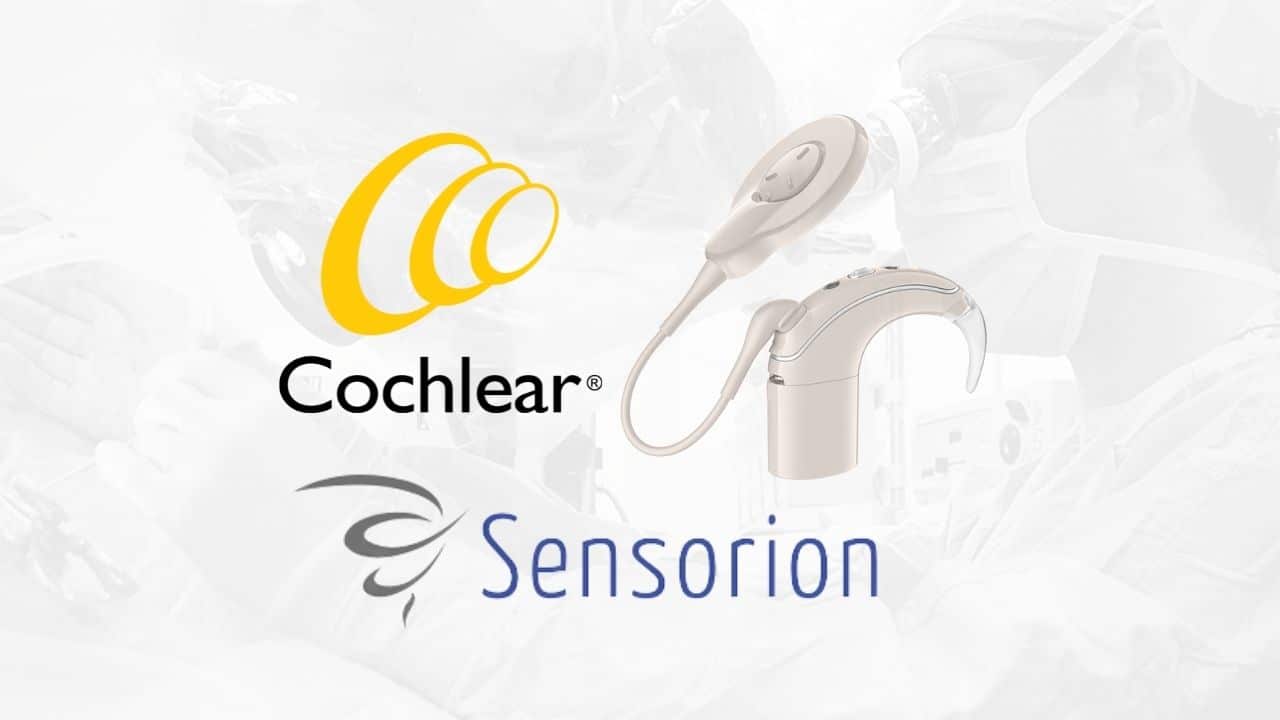MONTPELLIER, FRANCE — Sensorion (FR0012596468 – ALSEN), a pioneering clinical-stage biotechnology company which specializes in the development of novel therapies to restore, treat and prevent within the field of hearing loss disorders, has announced that the first patient has been enrolled in its proof-of-concept clinical trial of SENS-401 (Arazasetron) in patients scheduled for cochlear implantation.
At the beginning of 2021, Sensorion disclosed positive preclinical data demonstrating that the combination of SENS-401 alongside a cochlear implant helped reduce loss of residual hearing at a frequency located beyond the electrode array. Preservation of “natural” hearing is particularly important in speech recognition. Preclinical studies were undertaken in collaboration with the global leader in implantable hearing, Cochlear Ltd.
“We are very pleased to commence this trial in collaboration with Cochlear. With encouraging supporting preclinical data, we believe that SENS-401 has the potential to improve the preservation of residual hearing in patients receiving cochlear implants.”
—Géraldine Honnet, Chief Medical Officer of Sensorion
The Phase 2a trial is a multicenter, randomized, controlled, open-label trial aimed at evaluating the presence of SENS-401 in the cochlea (perilymph) after 7 days of twice-daily oral administration in adult participants prior to cochlear implantation due to moderately severe to profound hearing impairment.
Eligible participants in France and Australia will be randomized on Day 1 to either Arm A or Arm B in ratio 2:1 (with the aim of enrolling 27 participants in total: 18 participants in Arm A and 9 participants in Arm B).
- Arm A participants will commence dosing with twice-daily oral 43.5 mg SENS-401 for 7 days prior to their scheduled cochlear implant surgery on Day 8 and will continue SENS-401 up to 42 days from day of surgery inclusive.
- Arm B participants will not receive any treatment other than their scheduled cochlear implant surgery.
The trial will also assess several secondary outcome measures, including the change of hearing threshold from baseline to the end of the study in the implanted ear at several frequencies.
About SENS-401
SENS-401 (Arazasetron), is a drug candidate that aims to protect and preserve inner ear tissue from damage that can cause progressive or sequelar hearing impairment. A small molecule that can be taken orally or via an injection, SENS-401 has received Orphan Drug Designation in Europe for the treatment of sudden sensorineural hearing loss, and Orphan Drug Designation from the US FDA for the prevention of platinum-induced ototoxicity in pediatric population. It has received Investigational New Drug (IND) clearance from the US Food and Drug Administration (FDA).
About Sensorion
Sensorion is a pioneering clinical-stage biotech company, which specializes in the development of novel therapies to restore, treat and prevent within the field of hearing loss disorders. Sensorion has built a unique R&D technology platform to expand its understanding of the pathophysiology and etiology of inner ear related diseases, enabling it to select the best targets and mechanisms of action for drug candidates. Its portfolio combines both small molecule programs and a preclinical portfolio of inner ear gene therapies.
Its clinical-stage portfolio includes one Phase 2 product: SENS-401 (Arazasetron) progressing in a planned Phase 2 proof-of-concept clinical study of SENS-401 in Cisplatin-Induced Ototoxicity (CIO) and, with partner Cochlear Limited, a study of SENS-401 in patients scheduled for cochlear implantation.
Sensorion has entered into a broad strategic collaboration with Institut Pasteur focused on the genetics of hearing. It has two gene therapy programs aimed at correcting hereditary monogenic forms of deafness, including OTOF-GT, targeting deafness caused by a mutation of the gene encoding for otoferlin, and hearing loss related to mutation in GJB2 gene to potentially address important hearing loss segments in adults and children (GJB2-GT). The Company is also working on the identification of biomarkers to improve diagnosis of these underserved illnesses.
About Cochlear Limited (ASX: COH)
Cochlear is the global leader in implantable hearing solutions. The company has a global workforce of more than 4,000 people and invests more than AUD$180 million a year in research and development. Products include cochlear implants, bone conduction implants and acoustic implants, which healthcare professionals use to treat a range of moderate to profound types of hearing loss. Since 1981, Cochlear has provided more than 600,000 implantable devices, helping people of all ages, in more than 180 countries, to hear.
Source: Sensorion







